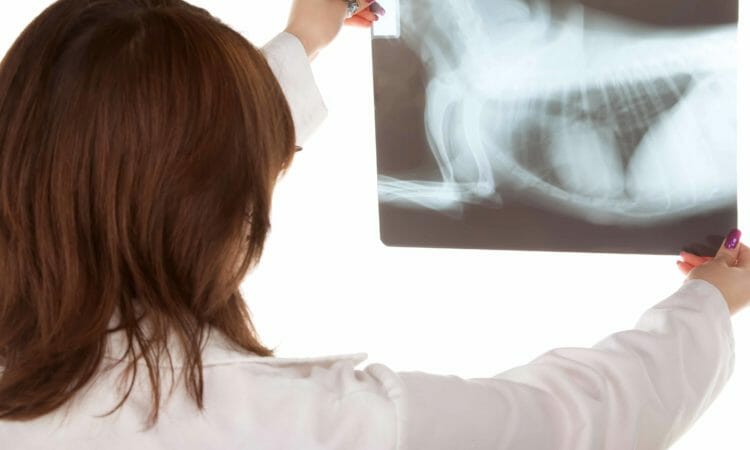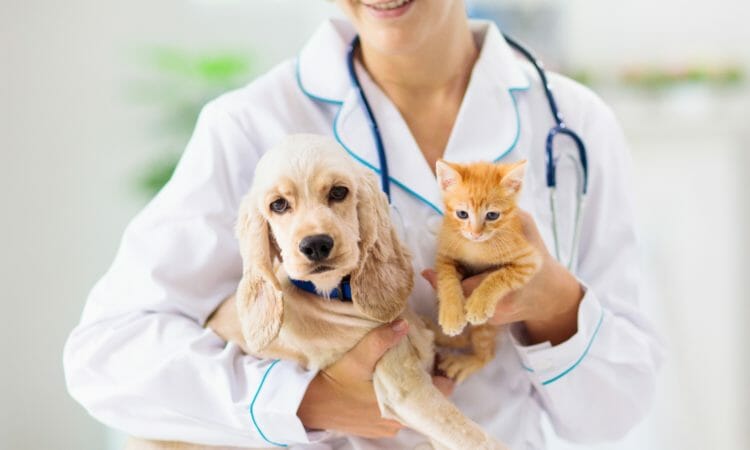Everyone loves showing their pet affection which oftentimes means you are very close to their face and mouth. It is not uncommon to hear pet parents say their pet has “doggy breath.” What many people don’t know is that “doggy breath” is not healthy even though it has been normalized. At our hospital, we emphasize educating pet parents about this and other misconceptions to ensure their loyal companions are as healthy as can be. Please don’t hesitate to reach out to us if you have any questions about your pet’s dental health, or if you wish to learn more about our dental care services.
What is periodontal disease?
Pets develop this disease when their oral health isn’t taken care of properly. Each time your pet eats, leftover food particles mix with saliva and bacteria to form plaque. Plaque is a thin film that discolours their teeth. If the plaque isn’t brushed away daily, it builds up into tartar and the bacteria multiply. Their body responds by releasing enzymes to fight the tartar. The enzymes break down gum tissue which causes inflammation, tooth decay and tooth loss.
What are the signs of periodontal disease in pets?
Some signs that your pet may have gum disease include:
- Red or bleeding gums
- Blood on their chew toys
- Bad breath
- Yellow or brown buildup on their teeth
- Sneezing and nasal discharge
- Loose teeth
- Chewing only on one side of the mouth
All of these indicators should be taken seriously and assessed by a veterinarian. A visit to one of our veterinarians can protect your pet from pain, tooth damage and other complications. Please call us at 519-971-3100 to book an appointment.
How can I care for my pet’s oral health?
- Brush their teeth regularly. Ideally, you should brush your pet’s teeth daily. It might be difficult at first but once it becomes a part of their routine it gets easier. Never use human toothbrushes or toothpaste for your loyal companion. There are pet-safe toothpaste that come in different flavours and special toothbrushes that will be gentle on their mouth.
- Ensure they have annual dental exams. At our hospital, we perform cleanings and dental X-rays to check for gum disease. During your pet’s annual cleanings, we can demonstrate how to safely brush their teeth at home and also recommend dental hygiene products.
- Give your pet toys that don’t harm their teeth. Some toys like tennis balls, real bones or cow hooves are too hard for them to chew on. Instead, we recommend toys like rawhides, rubber bones or anything that is soft and not hard.
- Provide treats that clean their teeth. There are some snacks that can clean your pet’s teeth as they chew, just ask our veterinarians for their recommendations.






